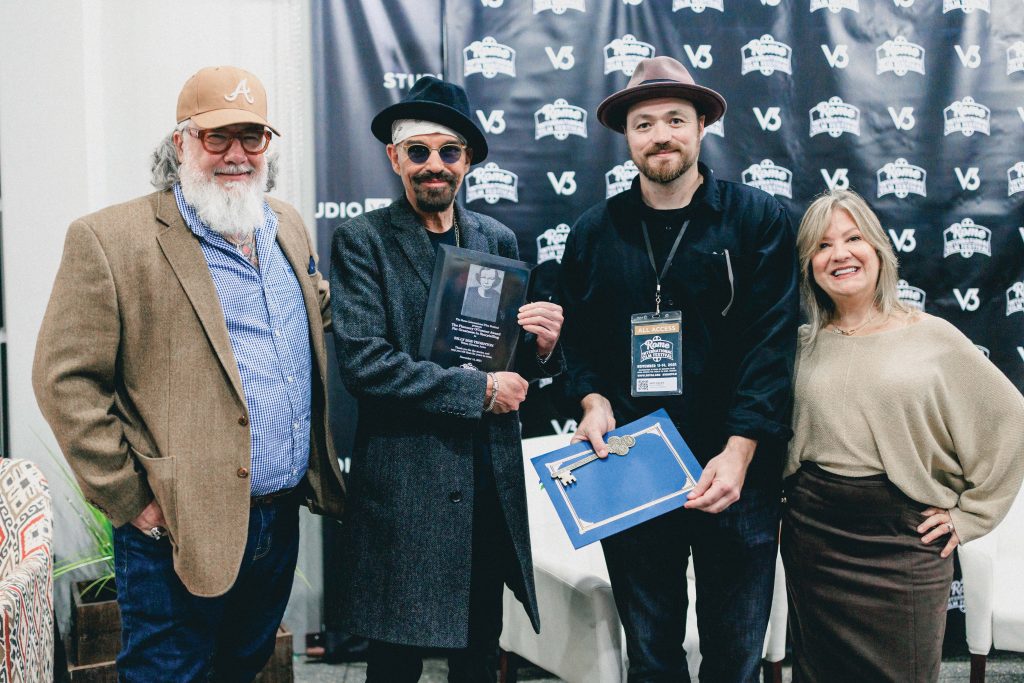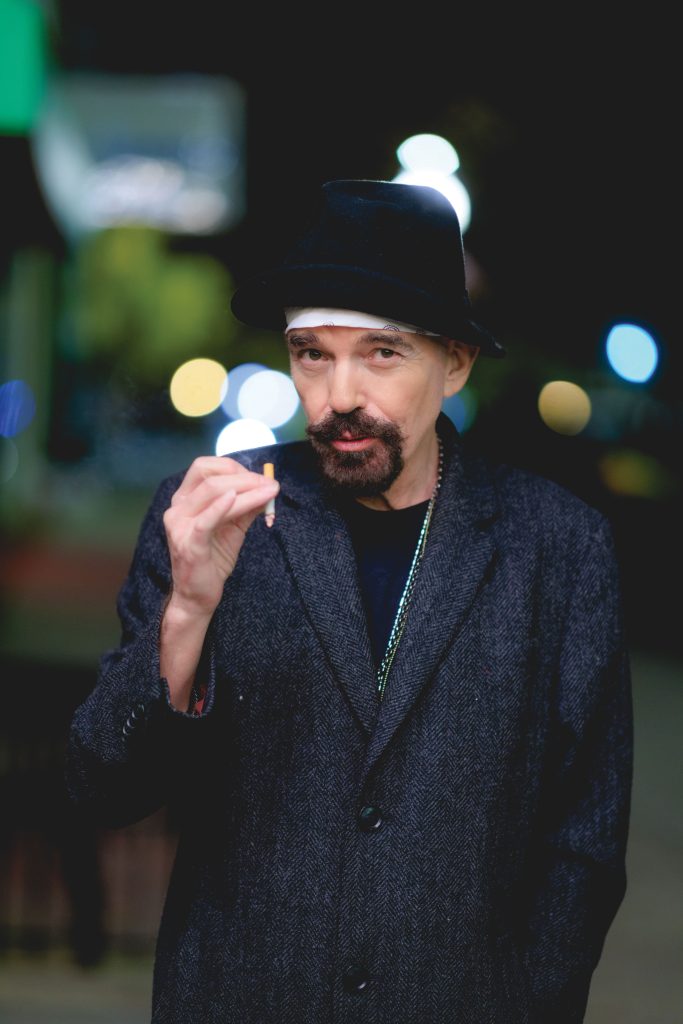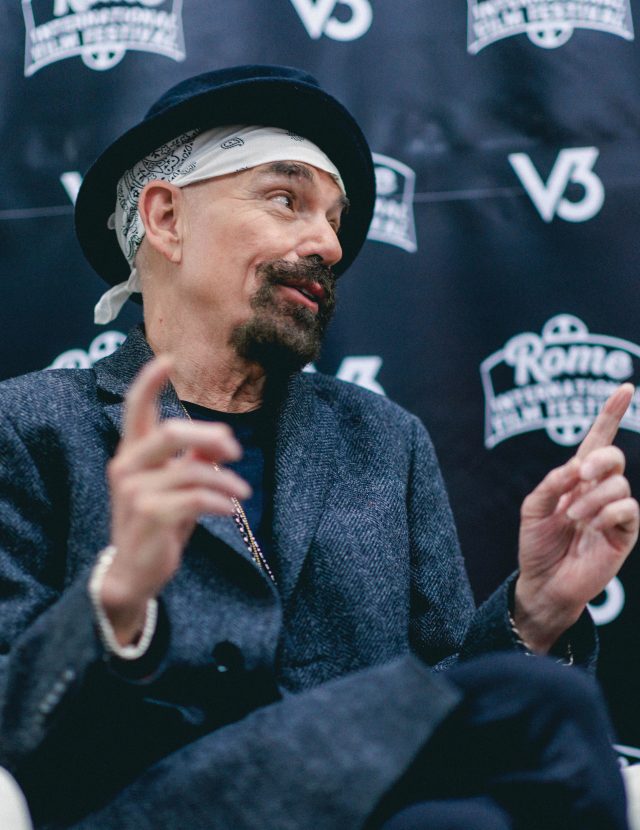
Photos Andy Calvert
One thing is now indisputable: no one can call Rome, Georgia, an entertainment backwater; the city’s connection to Hollywood grows stronger year by year. In recent times, it has even become more and more common to see famous actors strolling down Broad Street or sipping a latte in a downtown coffee shop or dining in local restaurants, keeping rumors flying and social media humming.
Much of that is due to movie and television studios springing up in and around Atlanta, making Floyd County a convenient location for filming stories set in small towns and in rural areas. The South is on the rise, as far as the TV and film industries are concerned. So, it was exciting, but hardly surprising, when last month A-list actor Billy Bob Thornton showed up on the streets of Rome.
Rolling out the red carpet
Thornton was in town for the Rome International Film Festival (RIFF), which celebrates its 18th birthday in 2021. Under the leadership of Executive/Creative Director Seth Ingram, RIFF continues to welcome local, national, and international filmmakers to showcase their works here. For nearly two decades, the festival has given filmmakers the invaluable opportunity to rub elbows with like-minded entertainment professionals.
The festival was held from November 11th through the 14th. As RIFF’s website says, the festival “accepts films in every genre, on any topic, from every country around the world. Narrative and documentary features by first-time directors, breakout features from non-first-time directors, short films across genres, and episodes. We do not disqualify any films based on premiere status or date of completion. We do lean into genre and documentary films.”
RIFF featured a 25th anniversary screening of Sling Blade, a movie that Thornton wrote, directed, and starred in, and for which he received the Academy Award for Best Adapted Screenplay (and for which he was nominated for Best Actor). Though not his first movie, Sling Blade is the film widely credited for thrusting him into the public eye, affording him the platform for subsequent success. Some of his other movie credits include U Turn, Primary Colors, Armageddon, Monster’s Ball, Friday Night Lights, and Bad Santa. Two of his breakout TV roles were in Fargo and Goliath.
V3 was proud to open its office doors to RIFF for two press junkets, one on Saturday and the other on Sunday. There, local and regional news outlets and publications gathered to hear various filmmakers talk about their work. On Sunday afternoon, the guest of honor was Billy Bob Thornton.
After the mayoral welcome and proclamation, and after graciously receiving the obligatory Key to the City, Thornton accepted the inaugural Flannery O’Connor Award for Storytelling, presented by RIFF. For Thornton, both screenwriting and creating song lyrics satisfy creative and emotional needs in ways that other creative outlets in the entertainment industry do not.
For instance, contrasting the processes of acting and writing, Thornton says, “Acting is playing—it’s actually going out on a playground with the other kids and being in the game. And I need that. But writing satisfies that part of myself that longs to sit in my room and dream.”
After the award presentation, Thornton sat down for an interview with RIFF’s co-creative director, Michael Dunaway. During the interview Thornton was relaxed, talkative, funny, and charming. A consummate professional. He regaled his listeners with stories and anecdotes about his life, career, and personal philosophy, much of it focusing on storytelling.
It’s all about the story
In response to an interview question by Dunaway regarding the storytelling traditions of the South, Thornton says, “The South has a rich history of storytelling, and I don’t know what it is about the ghosts, but they’re here. And Southerners have a unique way of telling stories, too.” In the small community where Thornton grew up, there were few, if any, outlets for theatrical expression, so oral tradition was important; tales were passed down through the generations around kitchen tables with family and friends.
Thornton addressed a shortsighted, even myopic, view of history that he sees as prevalent in America today: that the broad sweep of historical context is being lost in a truncated view. For him, good writing is part of the solution for this problem.
He says, “I think one of the things about history for our younger generations is that it’s going back a shorter and shorter distance all the time, and so in writing I just believe that we need to draw on our entire history to do it. It may be your personal history, or it may be actual history—whatever it is—but we don’t have to just start now and go forward. There’s no sense in just dropping who we are.”

Music man
Besides being a screenwriter, actor, director, and producer, Thornton is also a musician. When he was young, he thought he would have a career solely in music. Ever since middle school he has been in various bands. While still in high school, he worked as a roadie for the Nitty Gritty Dirt Band, Blood, Sweat & Tears, the Statler Brothers, and Johnny Paycheck, among others. Early interaction with these music greats strengthened his resolve to pursue a career as a musician.
In 1982, Thornton and friends Nick and Michael Shipp (brothers), while living in Houston, Texas, formed the band Tres Hombres, which they named after a ZZ Top album of that name. The band had some regional success, even opening for big names like Hank Williams Jr. They garnered the appreciation of some of those they idolized; Billy Gibbons of ZZ Top called Thornton’s band “the best little cover band in Texas.” However, despite touring and recording an album, Gunslinger, they disbanded in 1985.
In 2007, Thornton founded his present band, The Boxmasters, with friend and former sound engineer J. D. Andrew. The Boxmasters, who have produced ten albums, have a sound that evokes the rock & roll of the 1960s, but with a contemporary flare. Their music owes an obvious debt to the influence of the upbeat rhythms of surfer rock and the iconic sound of the bands of the British Invasion, as well as to such singer/songwriter greats as John Pine and Kris Kristofferson.
Originally, Thornton served as the band’s drummer, but is now the frontman; he and Andrew have always shared the responsibility of songwriting. Besides headlining in many venues (including Nashville’s Grand Ole Opry) for an ever-growing cult fanbase, they have also opened for such diverse groups as ZZ Top and Kid Rock.
Many in the public tend to think of Thornton as an actor who sings and plays the drums, however, he thinks of himself as a musician who acts. Growing up in a tiny Arkansas town, his family did not have electricity until he was nine years old, so TV was not part of his early childhood. Chuckling, he notes, “The most memorable movie from my childhood was The Ghost and Mr. Chicken” (starring Don Knotts, 1966). As a child, Thornton did not see acting as an aspirational goal, but he always had an interest in storytelling, and even more—music. “I never intended to be a movie star,” he says. “It happened accidentally. Music is what I love.”
Marching to his own drumbeat
For someone whose original dream was not to work in the film industry, Thornton certainly has paid his acting dues. To pay the bills between acting gigs while living in Los Angeles, he waited tables, worked as a fast-food manager, worked the phones as a telemarketer, and laid asphalt. He even worked as an offshore wind farmer. Times were often tough. And hungry. At one point, after a long stint of eating almost nothing but potatoes, he was hospitalized in critical condition for myocarditis, a heart condition caused by malnutrition.
Those same sidewalks he once walked in search of work now display his name, on the star he received on the Hollywood Walk of Fame in 2004. Despite his early setbacks, Thornton has proven himself as a sort of polymath of the entertainment trade, doing a little bit of everything, and doing it all well, earning him the respect of many of those he has long admired. Film legend Robert Duvall, for instance, summed up Thornton well, calling him “the hillbilly Orson Welles.”















